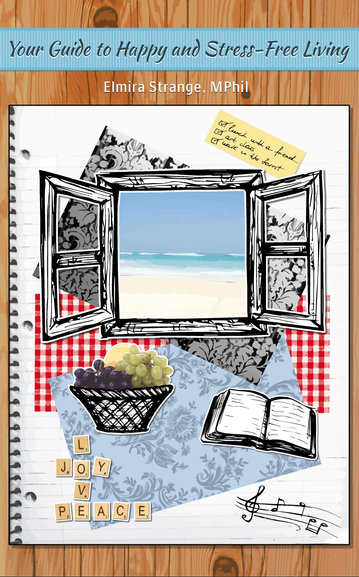Why am I lonely?
by Elia Strange
When we feel that our relationships with others lack something important (i.e. do not satisfy us), we experience personal distress and loneliness.
Being along doesn’t mean being lonely.
We can be happy alone or lonely in a crowd.
However, people are somewhat more likely to feel lonely when they are by themselves.

In a carefully controlled study, Reed
Larson and his colleagues (1982) asked teenagers to carry electronic
pagers for a week. At random times from early morning to late evening,
the researchers activated the pagers, sounding a beep that signaled
participants to fill in a short questionnaire describing what they were
doing and whether they were alone or with others. It also asked them to
describe their feelings.
In general, teenagers felt lonelier when they were alone than with others, especially on Friday and Saturday nights. Adolescents did not feel particularly lonely if they were alone during the week while studying or shopping.
However, being alone on a weekend evening, when they supposed to be with friends and they weren’t, often made them feel lonely.
Why do we feel lonely?
- Loneliness is quite common. 1 in 4 Americans says that he or she has felt very lonely in the past 2 weeks.
- Loneliness may feel from twinges of discomfort to severe and persistent feelings of intense misery.
- Sometimes, loneliness is caused by a life change. For example, if you moved to another town leaving your friends behind, changed school, started a new job, separated from your family and loved ones, or ended an important relationship.
- Loneliness can result from a physical illness or a serious accident, particularly when a person had to stay in a hospital for some time or if the illness/accident reduced his/her physical abilities. Most people eventually recover from situational loneliness and re-establish satisfying social life.
Chronic and Severe Loneliness
Some people suffer from loneliness for many years, and this is called ‘chronic loneliness’. Perhaps 10% of adults suffer from severe and persistent loneliness.
Severe loneliness has been associated with a variety of personal problems, including depression, abuse of alcohol and drugs, and low grades in college.
It is also associated with poorer health and, among older adults, with increased risk of hospitalisation and death.
Who is at greater risk?
Some researchers have suggested that certain people are at greater risk than others. For example, children of divorced parents are at greater risk of loneliness, or people who suffer from shyness or low self-esteem. Those who have a partner feel less lonely than those who don’t.
Married people are less likely to feel lonely than those who just live together with partners. Although some married people can also feel lonely, for example, if they don’t have many friends or their relationship is not satisfying.
Age and Wealth
It is noted that loneliness is more common among the poor than among the affluent. Good relationships are easier to maintain when people have time and money for leisure activities.
Interestingly, research shows that loneliness is highest amongst teenagers and young adults and lowest amongst older people.
As people get older, their social life becomes stable. Older people may have greater social skills and more realistic expectations about social relationships.
Types of Loneliness
There are two types of loneliness: emotional and social. Emotional – results from the absence of an intimate friend, partner, spouse or parents; social – results from the absence of friends and social community.
During our whole life most people experience loneliness at some point of their lives. It is not a sign of weakness; loneliness reflects our human need for social relationship, a need that all people share.
Summary
- Being along doesn’t mean being lonely.
- Loneliness is quite common.
- Most people eventually recover from situational loneliness and re-establish a satisfying social life.
- Most people experience loneliness at some point of their lives.
- Loneliness reflects our human need for social relationships, a need that all people share.
- Rejection by peers is one of the most painful childhood experiences and can lead to loneliness even in young children.
- The experience of being ignored or rejected is called ‘ostracism’.
Other articles you might be interested in:
7 Reasons for our unhappiness
Why do we fall in love
Why do I need to be in a relationship to feel happy
Why do we find some people attractive
How well do you cope with stress? (Test yourself)
... or go to:
Archives of all Articles
Archives (page 2)
Home Page (Coping with Stress)
Or follow me on Twitter and Google+ by clicking on the symbols below:
Sign
up below to receive my free email newsletter with new fresh articles to
help you to become healthier and happier.
It's sent about once a month.
No spam. No
sharing of your email address. Easily unsubscribe at any time.
Best Articles:
10 tips to strengthen your marriage
Best ways to manage your stress
How to get what you want (the Law of Attraction)
Why do I need to eat healthy?
Signs and stages of stress
13 Facts about sugar addiction
7 Reasons for our unhappiness
Why people commit suicide
How to get a good night sleep
Try these Tests and Quizzes:
Is it time to take stress seriously?
How well do you know yourself?
Can you talk to teenagers?
Do you have a time to recreate?
Can you cope with stress well?
The Latest Articles:
Green Smoothie Recipe
Stress in Parents and Carers of disabled children (VIDEO)
Did you find your dream job yet?
Is an eye mask good for sleeping?
How to look and appear confident
Why am I tired all the time?
Exercise tips: 8 easy ideas for losing weight and become fitter
15 Sure signs that you are stressed
Are memory foam mattresses worth it?
How stress affects your health: What stress is doing to your body
How to get what you want (the Law of Attraction)
How to be more patient
How to deal with SAD: Autumn depression
How to stop negative thinking
How bad is your memory? (Fun Quiz)
What is love - in children words
How to make people like you?
Why do I forget things?
10 Tips to strengthen your marriage
Would you move abroad?
Are holidays worth it?




New! Comments
Have your say about what you just read! Leave me a comment in the box below.